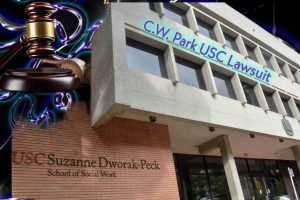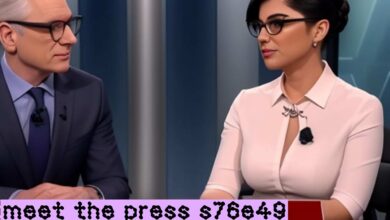Introduction of C.W. Park USC Lawsuit
In the realm of higher education, the legal battleground between C.W. Park and the University of Southern California (USC) has emerged as a compelling saga, challenging the delicate balance between individual rights and institutional governance.
As a journalist specializing in university lawsuits and academic law, the intricacies of this case beckon a thorough examination, offering a profound insight into the nuanced conflicts that can arise within esteemed educational institutions. In this article, we will explore about C.W. Park USC Lawsuit.
Exploring the Background of C.W. Park USC Lawsuit
The rise and subsequent legal fall of C.W. Park USC Lawsuit within USC’s academic corridors present a complex narrative. Once celebrated for groundbreaking research and compelling lectures, Park’s legacy now stands overshadowed by a controversy that has found its way into the courtroom. To comprehend the depth of this university legal dispute, it’s imperative to trace the journey comprehensively, from Park’s notable contributions to the controversies preceding legal actions.
Legal Foundations of C.W. Park USC Lawsuit
At the heart of this legal quagmire lie the claims made by C.W. Park against USC. The lawsuit’s legal basis is intricate, entwined with the nuances of contractual agreements and academic norms. Park’s accusations, including breaches of contract, infringement upon academic integrity, and damage to professional reputation, prompt a closer look at the legal documents, precedents cited, and counterclaims put forth by USC.
This evolving case has the potential to reshape the landscape of academic legal disputes, prompting a re-evaluation of how such battles are waged within the hallowed halls of learning.
Ramifications on Academic Institutions of C.W. Park USC Lawsuit
The implications of the C.W. Park lawsuit extend far beyond USC, resonating with academic institutions nationwide. As universities watch this case unfold, the potential transformative shifts in foundational structures governing academia become apparent. From the impact on reputation and internal relations to questions surrounding academic freedom and tenure protocols, the repercussions of this lawsuit may prompt a re-examination of policies across higher education.
Allegations Unveiled of C.W. Park USC Lawsuit
Unpacking the allegations in the C.W. Park lawsuit reveals a multifaceted conflict. From alleged violations of contractual agreements to claims of infringement upon academic integrity and damage to professional reputation, each accusation carries weight.
USC’s counterclaims, supported by robust documentation of policies and procedures, further complicate the legal landscape. The academic community’s varied reactions underscore the broader tension between educational oversight and the freedom of academia’s thought leaders.
Public and Media Dynamics of C.W. Park USC Lawsuit
Media coverage of the USC case reflects a diverse range of reporting styles, potentially influencing public opinion. Anecdotal evidence from students, faculty, and alumni on social media platforms adds a personal dimension to the public discourse. As a journalist, navigating through these varied accounts and sentiments is crucial to delivering a balanced report. The media coverage and ensuing public uproar contribute to the broader societal and cultural impacts of this lawsuit.
Legal Proceedings Unveiled of C.W. Park USC Lawsuit
The legal proceedings in the C.W. Park USC Lawsuit case paint a complex picture of court rulings, legal motions, and fervent arguments. The procedural events set the stage for a heated battle, with expert insights proving indispensable in projecting timelines and potential outcomes. While media narratives may simplify or dramatize aspects of the case, the true texture of legal proceedings is intricate and procedural.
Governance in the Spotlight of C.W. Park USC Lawsuit
The governance structures within academic institutions, exemplified by USC, play a pivotal role in managing disputes. However, the magnitude of the C.W. Park lawsuit highlights potential weak spots within these systems. Evaluating USC’s dispute resolution mechanisms, exploring governance structures, and analyzing policy effectiveness in the current academic climate reveal the need for ongoing discussions and, possibly, reforms.
Conclusion
As the C.W. Park USC Lawsuit unfolds, the far-reaching implications for all stakeholders involved become apparent. The verdict holds the potential to shape conflict resolution protocols, tenure considerations, and the delicate balance of power within esteemed institutions.
This legal juncture offers an opportunity for proactive changes in university governance, strengthening channels of communication, enhancing transparency, and upholding the integrity of educational establishments. In anticipation of the final resolutions, there is inherent hope for a new era of governance conducive to both scholastic excellence and judicial fairness.
Faqs:
1. Why is C.W. Park suing USC?
C.W. Park is taking USC to court because of problems like breaking agreements, harming Park’s academic reputation, and damaging his professional standing. The lawsuit is a complex issue involving individual rights and how schools are run.
2. How do the accusations in the lawsuit affect USC’s reputation?
The accusations, including breaking agreements and harming professional reputation, could make USC look bad, not just for C.W. Park but for the whole school. This might worry potential students and faculty about whether the school is trustworthy.
3. What does the C.W. Park lawsuit mean for other schools?
The lawsuit’s impact goes beyond USC, suggesting big changes in how universities are structured. It brings up questions about academic freedom, job security, and how schools handle problems. Other schools might need to rethink their rules.
4. How are people reacting to the C.W. Park lawsuit, and why does media coverage matter?
People, like students and alumni, are reacting differently on social media. Media coverage, with its different ways of reporting, affects what people think. Sorting through these different opinions helps understand how the lawsuit is affecting society and culture.
5. What’s the role of governance in the C.W. Park lawsuit, and why does it matter for schools?
Governance, or how schools are managed, is crucial in handling disputes like the C.W. Park case. This lawsuit shows that there might be problems in how schools are run. It could lead to changes that make school management better, keeping a balance between good education and fair rules.
Please explore our site for more exciting content if you like this article.





